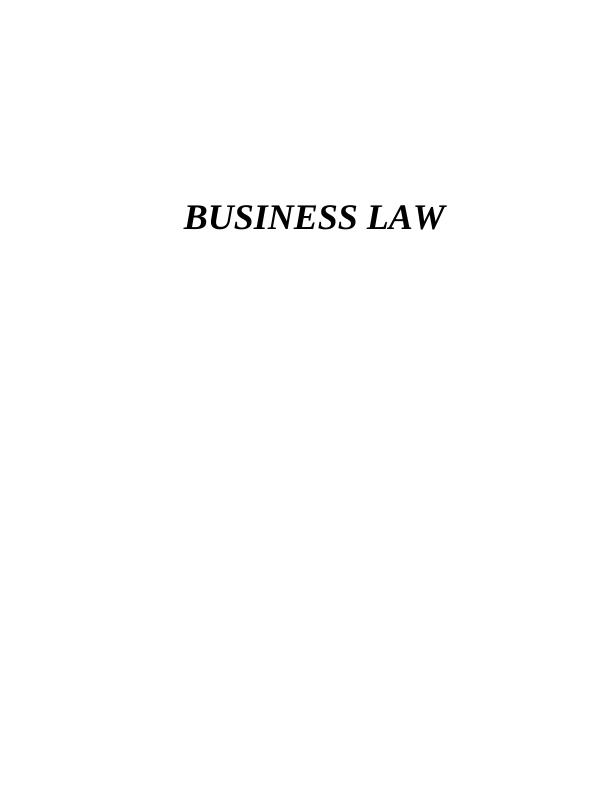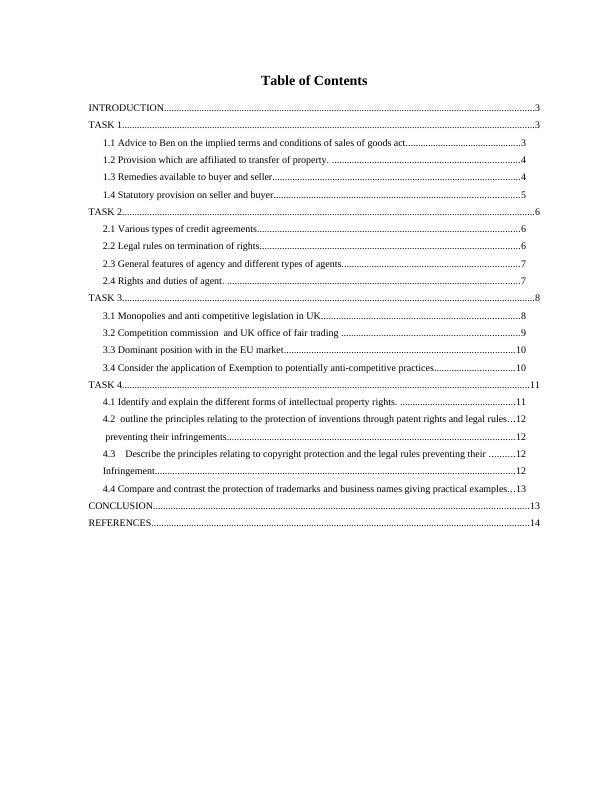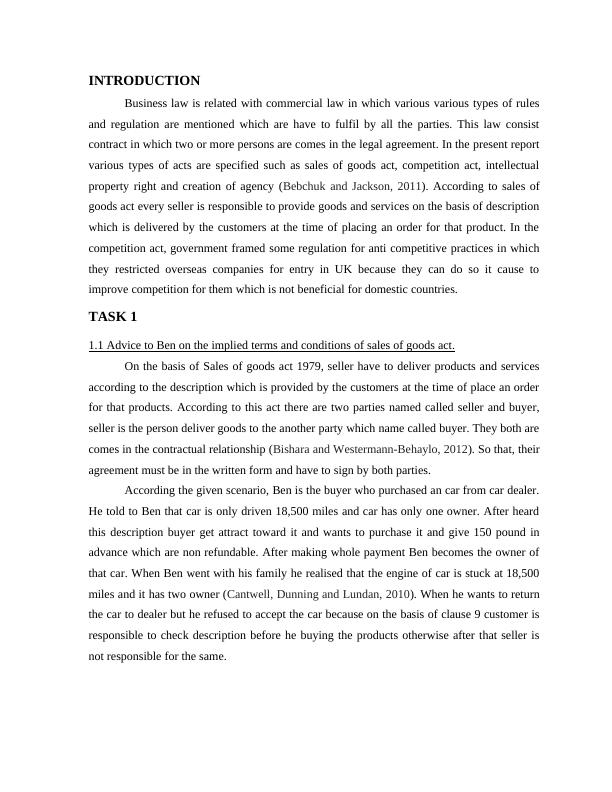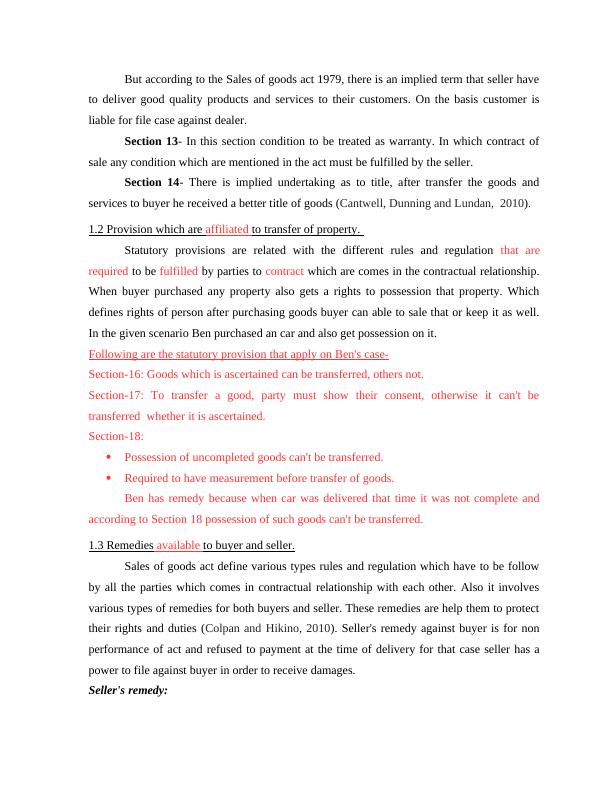BUSINESS LAW INTRODUCTION 3 TASK 13 1.1 Implied Terms and Conditions of Sale of Goods Act
17 Pages5295 Words471 Views
Added on 2020-01-07
About This Document
4 1.4 Statutory provision on seller and buyer 5 TASK 26 2.1 Various types of credit agreements 6 2.2 Legal rules on termination of rights. 7 2.4 Rights and duties of agent.7 TASK 38 3.1 Monopolies and anti competitive legislation in UK 8 3.2 Competition commission and UK office of fair trading 9 3.3 Dominant position with in the EU market 10 3.4 Consider the application of Exemption to potentially anti-competitive practices10 TASK 411 4.1 Identify and explain the different forms of intellectual property rights. 12
BUSINESS LAW INTRODUCTION 3 TASK 13 1.1 Implied Terms and Conditions of Sale of Goods Act
Added on 2020-01-07
ShareRelated Documents
End of preview
Want to access all the pages? Upload your documents or become a member.
Business Law: Implied Terms, Statutory Provisions, Remedies, and Credit Agreements
|17
|4923
|299
Business Law TABLE OF CONTENTS INTRODUCTION 3 TASK 13 1.1 Advis to mount on the legal implicit terms associated with sales of goods act. 4 1.2 Statutory provision on buyer's and seller's rights
|15
|5206
|171
Legal Agreement: Business Law
|12
|3863
|144
Case Study on Business Law - Doc
|17
|5191
|33
Analyse and advice on statutory provisions in business law
|17
|6159
|291
Business Law Assignment Solved Paper
|14
|5537
|79




